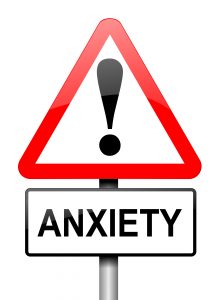 Many of the symptoms of Generalised Anxiety Disorder (GAD) overlap with depression. Individuals who suffer from GAD experience chronic, constant and frequently unsubstantiated worries, which can continue throughout the day and at night. High levels of anxiety adversely affect normal everyday activities. Physical symptoms of GAD include the following: muscle tension, gastrointestinal discomfort or diarrhoea, irritability, fatigue, edginess, restlessness and sleep disturbance. The person with GAD may also experience recurrent worries i.e. the person may ruminate on the same concerns repeatedly, concerns which may not be easily resolved. Panic attacks may also be a prominent feature. Reassurance may be ineffective.
Many of the symptoms of Generalised Anxiety Disorder (GAD) overlap with depression. Individuals who suffer from GAD experience chronic, constant and frequently unsubstantiated worries, which can continue throughout the day and at night. High levels of anxiety adversely affect normal everyday activities. Physical symptoms of GAD include the following: muscle tension, gastrointestinal discomfort or diarrhoea, irritability, fatigue, edginess, restlessness and sleep disturbance. The person with GAD may also experience recurrent worries i.e. the person may ruminate on the same concerns repeatedly, concerns which may not be easily resolved. Panic attacks may also be a prominent feature. Reassurance may be ineffective.
Following brain injury, the person who has sustained damage to the frontal lobes and associated networks may fixate on what may appear to be trivial concerns but lack the cognitive skills to  resolve these issues. This difficulty tends to be more prominent in those whose thinking is more concrete and inflexible (indicative of executive functioning impairment). The presence of significant cognitive and/or communication impairment can result in elevated levels of anxiety.
resolve these issues. This difficulty tends to be more prominent in those whose thinking is more concrete and inflexible (indicative of executive functioning impairment). The presence of significant cognitive and/or communication impairment can result in elevated levels of anxiety.
If the person has experienced significant problems with anxiety before their brain injury, this is likely to re-emerge and be exacerbated by the brain injury particularly in the context of damage to the frontal lobes and associated networks.